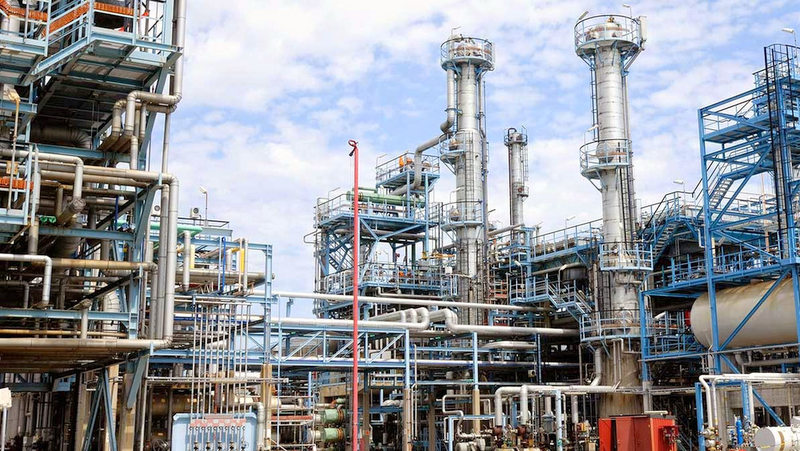Nigeria’s four official oil refineries lost a total of N406.62 billion within two years according to reports from the latest financial audit of Nigeria’s oil assets.
According to the report, the refineries located in Port Harcourt, Warri and Kaduna have continued to operate below their joint production capacity of 445,000 barrels per day despite the millions spent in revamping and keeping them afloat.
The report said further that Nigeria continues to rely on importation of petroleum products to make up for the loss in local production.
The refinery in Kaduna lost N64.34bn in 2018 compared to the loss of 111.89bn in 2017. The Warri refinery lost N44.44bn in 2018 and N84.60bn in 2017. While the plants in Port Harcourt also lost N45.59bn in 2018 and N55.76bn in 2017.
See Also: Justice Administration In Nigeria Is Under Pressure From Elites – Vice President Osinbajo
During a summit organized by Seplat, the Group Managing Director of the NNPC, Mallam Mele Kyari confessed that all the oil refining facilities were idle and the government was importing all the petroleum products needed in the country.
Kyari said; “Today, unfortunately, all our four refineries are down. In Nigeria today, we are importing practically every petroleum product that we consume in this country. We are working to make sure that we are able to fix our refineries.”
The present state of the refineries defies the resolve of the Buhari administration which promised to revamp the ailing refineries and stop fuel importation by 2023. The plan was to restore the refining capacity of the plants by at least 90 percent through the use of third party financiers as well as the original refinery contractors for funding and technical support.
The plan however stalled due to the inabilities of all parties involved to come to terms on key commercial agreements, including issues about the market structure.
According to Mele Kyari, when he took over as GMD of the NNPC in July 2019, the corporation was pursuing a different path towards the revamping of the refineries where the NNPC would no longer be in charge of the refineries after their rehabilitation.
He said a company would be contracted to oversee the refineries upon rehabilitation while the deregulation of the downstream petroleum sector would enable private investment in the construction of refineries.
For decades, the Nigerian government has refused to acknowledge individual refining which is often carried out by oil thieves. Rather than use the technology, the Nigerian government destroys these small refineries while it continues to run its own oil facilities at a loss and import petroleum products.
Although the Federal government has issued a total of 44 licenses for the private construction of refining facilities over the years, very few investors are active in the sector, including Denote who is building a 650,000 barrel per day refinery in Lagos.



Leave a Reply